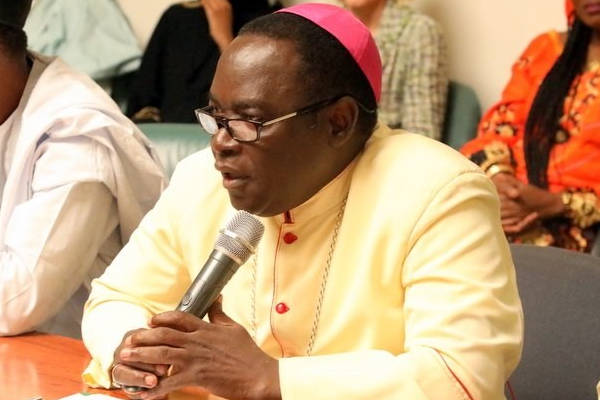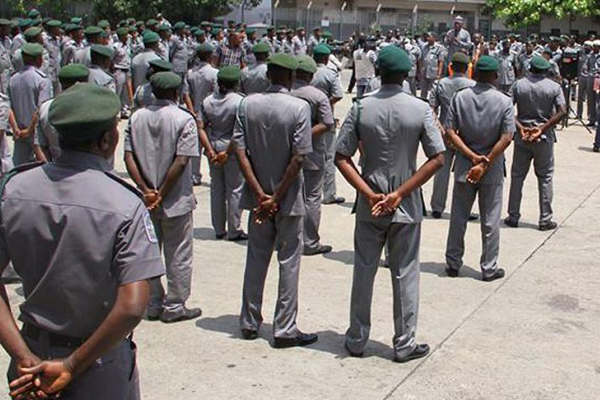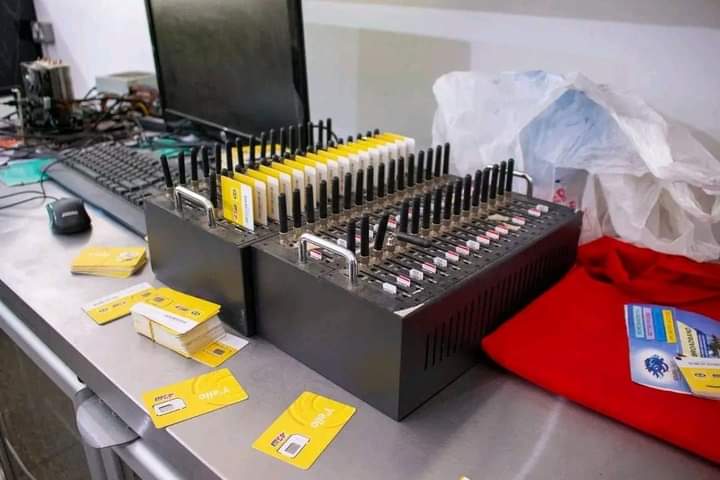“My political strength is in my sincere relationship with my friends across Nigeria. We have been friends for decades. You can’t use over 40 years of your life to pretend; even a saying goes that “a fool at 40 is a fool forever.”‘ It goes for the wise at 40 too. It goes for the loyal at 40 too. I did not wake up one day to say I want to lead Nigeria. I took time to understand the country and its people. I led my own life, I led in my career, I led my senatorial district, I led my state, and I led the Progressives in my region before I became the National Leader of our progressive party. In 1983 when Muhammadu Buhari introduced War Against Indiscipline, he said when we get to any place we must queue. So, I was on the queue too for decades, the queue of friendship, a queue of perseverance, the queue of track records, the queue of capacity, capability, and patriotism. Nigeria needs what I did at ExxonMobil. Nigeria needs what I did in Lagos. Nigeria needs my service. I’m 100% here and ready to serve Nigeria.”
Kukah’s Lamentation on Nigeria’s Leadership Quality And “Emi Lo Kan” Concept By Femi Odere

_—-excerpts from Asiwaju Bola Ahmed Tinubu’s campaign stump speech._
Asiwaju Bola Ahmed Tinubu’s appearance in Abeokuta, Ogun State back in June where he appealed to the state’s delegates in the run-up to the primaries of the All Progressives Congress (APC) to seriously consider voting for him, from where perhaps the most profound speech of his political career was issued, will be a reference point into the foreseeable future. It was from this speech that phrases like “Emi L’Okan” and “O Lu’le” (which have now crept into Nigeria’s political lexicon and prayer points) emerged.
While an inordinate amount of time, resources, and energy have been, and still being devoted to the jejune and comical interpretation of the speech itself, most especially the aforementioned phrases, nobody, it seems to me, has been able to dispassionately reflect on both the purport and import of the Abeokuta Declaration (again, especially these two phrases) to establish a nexus between the declaration and the Nigerian condition.
However, the recent statement of the Bishop of the Catholic Diocese of Sokoto State, Matthew Hassan-Kukah a few days ago during a television appearance where he said that no Nigerian Chief of State ever came prepared to the exalted office has offered a window through which Asiwaju’s Abeokuta speech can be contextualized, if not hurriedly interrogated.
Speaking at a Channels Television’s Roadmap 2023 program Bishop Kukah was quoted to have said: “You can go all the way down in Nigeria, you’re not going to find one single person who has been president or head of state in Nigeria that came prepared for the job.”
He was said to have gone further in his lamentation of the lack of preparation of Nigerian leaders, using the analogy of a bad marriage to explain the relationship between Nigeria and its political leaders by saying that “I always say to people as a priest that the solution to a bad marriage is not a new marriage. It’s often an attempt to look at what has gone wrong. And if you jump into a new marriage very quickly, after some time, you become nostalgic about the first marriage. A lot of these changes that we have seen in Nigeria are largely unprogrammed.”
But before one attempt to find a nexus between Kukah’s disappointment and Asiwaju’s “Emi Lo Kan” or at least create a somewhat symmetrical relationship, however inverse, between what the two personalities said, it’s important to remind us that the Jagaban Borgu had also met President Muhammadu Buhari to intimate him of his ambition to contest the presidency in 2023 in Aso Rock after which he informed the press about this meeting and declared that his presidential bid was a “lifelong ambition” and that he has “the confidence, the vision and the capacity to build on the vision of President Buhari.” Asiwaju’s qualification of his presidential bid as his “life ambition” needs to be joined in this “Emi Lo Kan” interrogation for more effect.
Unfortunately, Asiwaju’s concept of “Emi Lo Kan” in his Abeokuta declaration and his labeling of his presidential bid as a “lifelong ambition” after he met President Buhari has not only been mischievously twisted as the man’s uncanny sense of entitlement but has been isolated so that the dog, so to speak, would be given a bad name to hang it.
The “Emi Lo Kan” concept, it should be recalled from the speech, was borne out of a standing agreement between President Buhari and the northern geopolitical zone which he represents on the one hand and Asiwaju Bola Ahmed Tinubu who will, at an appointed time, represent the South, specifically the Southwest because the region is the other major partner in the political marriage that made it possible for Buhari to become the president (back-to-back) on the other hand, not to talk of the unwritten principle of power rotation that has sustained relative peace in the polity.
Unfortunately, the suspicious move to jettison this agreement, which was nearly violated on the eve of the party’s primaries was not only the purport of “Emi Lo Kan” by Asiwaju at Abeokuta but also an attempt to draw our attention to the fact that a country can never progress if its political and economic leaders continue to violate agreements with reckless abandon which has been one of the banes of the Nigerian condition. This, it seems to me, is the kernel of “Emi Lo Kan.”
Equally important is also the fact that “Emi Lo Kan” can be conveniently and rightly situated within the prism of leadership preparedness, or the lack thereof, to which Bishop Kukah alluded. It’s even apposite to see all the appurtenances of “Emi Lo Kan” in the epigraphic statement of Tinubu at the beginning of this piece.
Asiwaju’s statement above is therefore a compendium of all the attributes of leadership that should be required of anybody aspiring to a position of leadership in a culturally, religiously, and ethnically complex society such as Nigeria. This is what quality leadership entails.
Someone who’s been preparing either for a position or has been religious—-so to speak—-and painstakingly preparing for a sports competition must naturally and expectantly be better, and do better than his unprepared or half-prepared counterparts. This is what should be seen as the intrinsic, if not fundamental message of “Emi Lo Kan” which should have been appreciated in Asiwaju rather than the misplaced sense of entitlement that has been ascribed to him.
That Asiwaju Tinubu said after meeting with the president that this occasion is what he’s been waiting for as it has been his “life ambition” to preside over the affairs of Nigeria should equally have been seen as a positive attribute.
Whereas a “life ambition” can be negative as can be exemplified in the ambition of Adolf Hitler as the German Fuhrer, there had been many political leaders around the world we probably wouldn’t have known how they were able to change the course of history in their different geopolitical spaces if not because they told us, by way of their memoirs, that the feats history recorded for them was the result of what they considered to be their life ambitions and the preparations they put into these ambitions.
Perhaps the import of Bishop Kukah’s lamentation of inferior leaders in the country’s political economy, which had inevitably stunted our growth and development, can also be situated within the context of Plato’s quip that “one of the penalties for not participating in politics is that you end up being governed by your inferiors.” Nigeria has, for the most part, been governed by its inferiors since flag independence.
Asiwaju, having recorded many ‘firsts,’ will once again change the leadership selection narrative as he’s poised to become the first Nigerian president ever to have meticulously prepared for the job to the extent that he has figured out what must be done to put the country on a sustainable and irreversible growth path.
It’s one of the paradoxes of the Nigerian condition that a man who has not only demonstrated his leadership quality through his accomplishments, most of which are quite unprecedented that even his political enemies had no choice but to replicate some of these accomplishments both at the subnational and national levels is being dismissed as inconsequential in some quarters, yet longing for the Nigerian version of Lee Kuan Yew, Mustafa Kemal Ataturk or Franklin Delano Roosevelt of Singapore, Turkey, and the United States respectively.
A country on a seemingly permanent ominous trajectory, occasioned by deliberately engineered countervailing forces with variegated interpretations of modernity as the rest of the world knows it must necessarily implode at some point unless it seeks out its best brains to handle its political economy. This is the critical juncture in which we are in the coming presidential election with Asiwaju Bola Ahmed Tinubu as one of the contestants.
God forbid we missed it again as it may longer be morning yet on creation day if we do. Tinubu’s presidential bid should have long been the end of discussion considering the contestants that are arrayed against him. We have a choice to make.
_Femi Odere is Head of Media and Publicity of the Diaspora Directorate of the Tinubu-Shettima Presidential Campaign Council.




